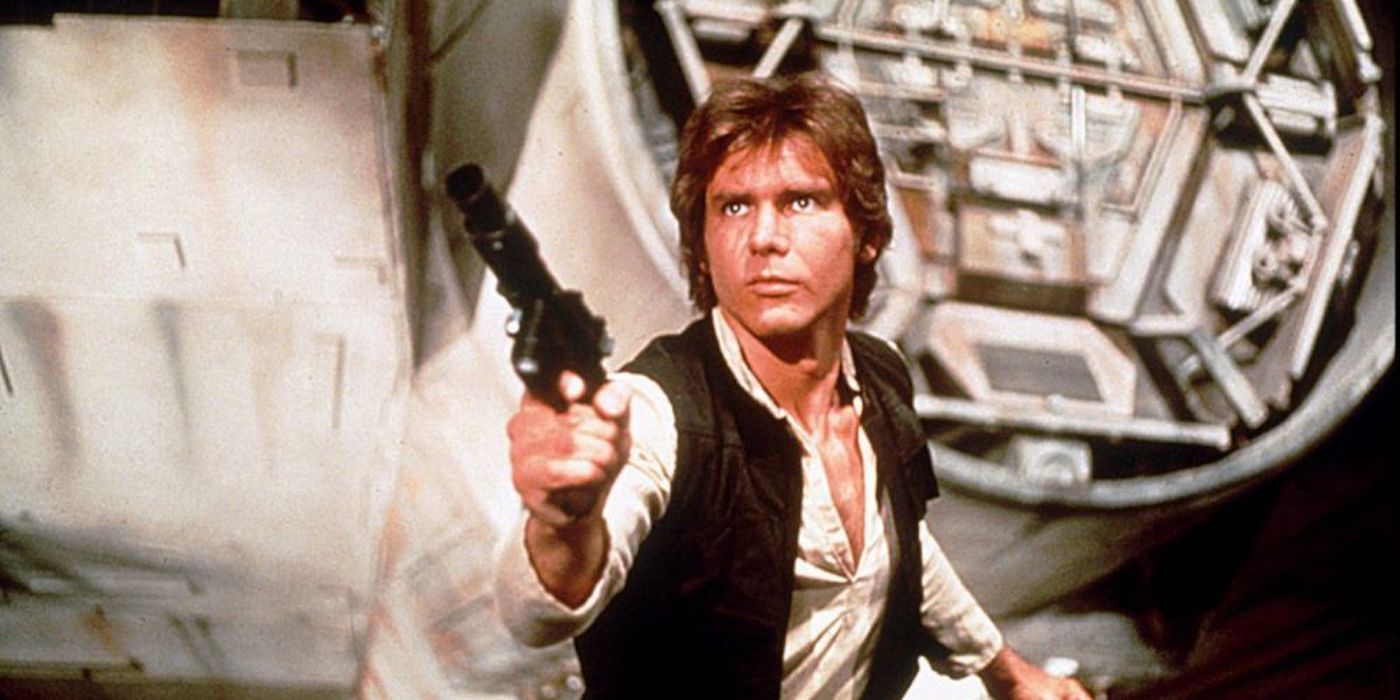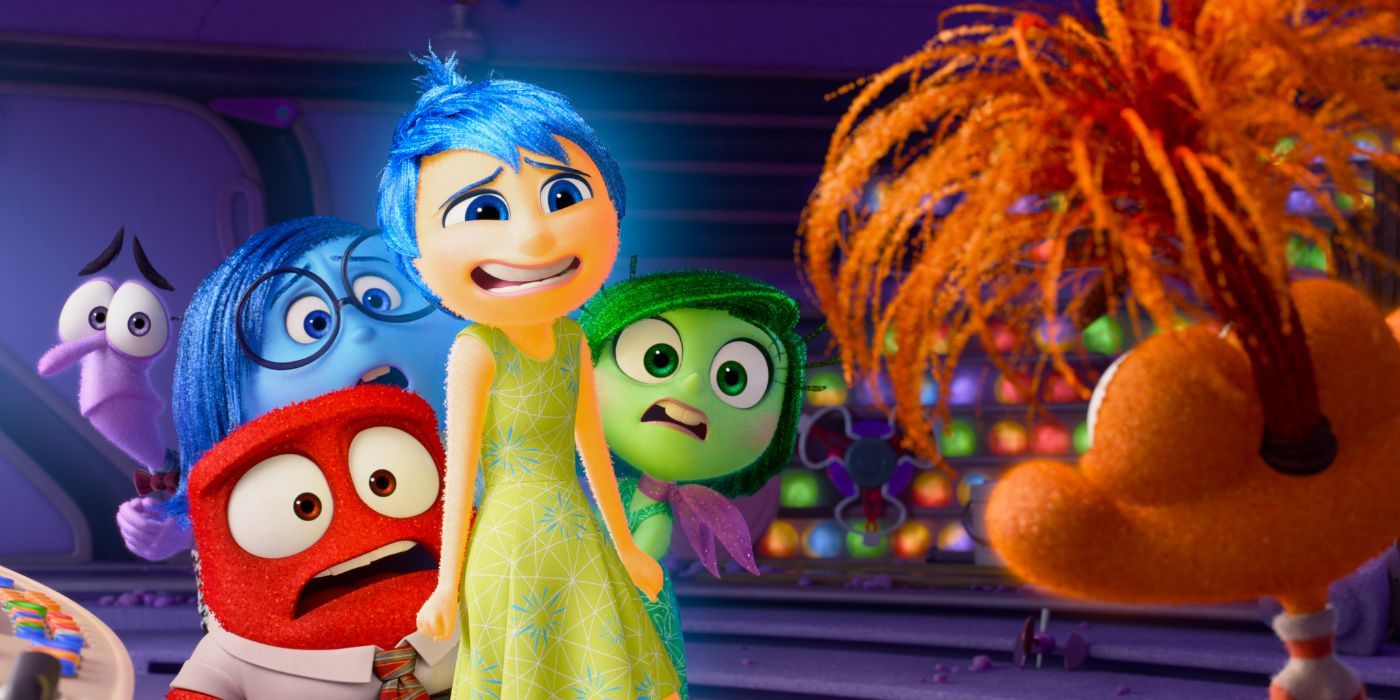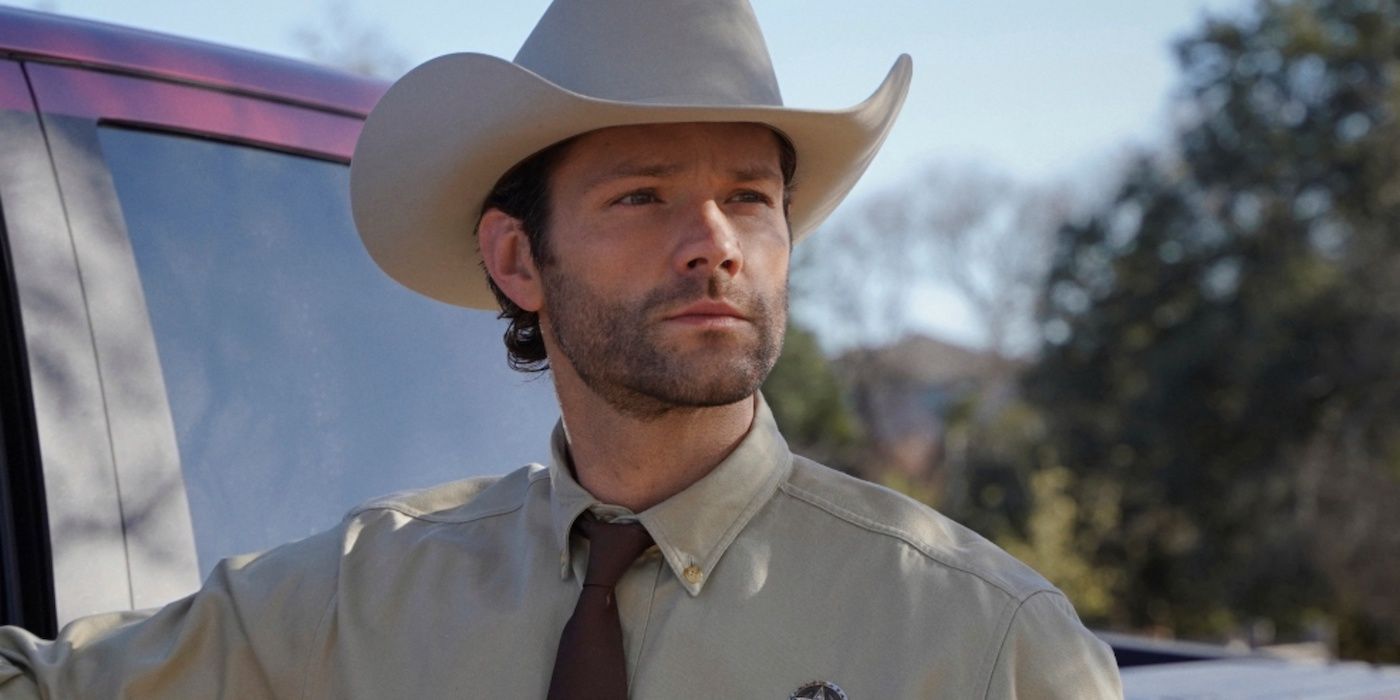The Big Picture
- According to John Williams, he convinced George Lucas an original soundtrack was needed for
Star Wars
. - Classical music was considered for the
Star Wars
soundtrack before Williams stepped in, potentially altering the epic cinematic experience we know today. - Williams’ score for
Star Wars
was crucial to its success, elevating the film to iconic status and forever impacting the world of cinema.
It’s impossible to think about Star Wars without its iconic John Williams score. Trying to imagine what cinema would look (or sound) like without Williams’ Star Wars score is difficult because it set the tone for most major blockbuster soundtracks that came after it. It’s undeniably one of the most iconic and influential soundtracks in cinematic history, but the world came very close to not having it at all. There are stories about how Williams’ score might have “saved” the original movie from being a complete disaster, and, if the composer hadn’t convinced George Lucas to let him score it, those stories could hold more weight than previously thought. That’s because Lucas wasn’t interested in having anyone score Star Wars before meeting Williams. At least that’s what the composer himself says.
Star Wars: Episode IV – A New Hope
Luke Skywalker joins forces with a Jedi Knight, a cocky pilot, a Wookiee and two droids to save the galaxy from the Empire’s world-destroying battle station, while also attempting to rescue Princess Leia from the mysterious Darth Vader.
- Release Date
- May 25, 1977
- Director
- George Lucas
- Runtime
- 121 minutes
- Writers
- George Lucas
- Tagline
- A long time ago, in a galaxy far, far away…
John Williams Claims George Lucas Wanted a Pre-Existing Soundtrack for ‘Star Wars’
The original Star Wars, known now as Star Wars: Episode IV – A New Hope, has a lot of iconic music, from “The Force Theme” (also known as “Binary Sunset”) to “The Throne Room,” passing through “Princess Leia’s Theme” and many others. The other eight Skywalker Saga movies are equally iconic in their soundtracks, with pieces like “The Imperial March” in Star Wars: Episode V – The Empire Strikes Back, “Duel of the Fates” in Star Wars: Episode I –The Phantom Menace, and “The Jedi Steps” in Star Wars: Episode VII – The Force Awakens. All of these are composed by John Williams, and we almost got none of them if George Lucas hadn’t met him.
In a 2020 interview with The New Yorker, Williams recalled the time when he met Lucas. According to him, the director wanted to use pre-existing classical pieces on the Star Wars soundtrack instead of an original score. After the two of them talked about the project, Williams eventually managed to convince Lucas that an original score would be ideal, as it could be written and used with the intent of manipulating the audience’s emotions, thus best serving the drama happening on screen. A representative of George Lucas later got in touch with The New Yorker to say that, as far as the filmmaker remembers, he had never “never intended to use extant music in the film,” so there may be a little debate around Williams’ claims. Still, using pre-existing classical music would put Star Wars in a rather odd position, as a significant part of what makes it iconic is indeed Williams’ music.
If Williams and Lucas had never met, Star Wars could have had classical music pieces in its soundtrack, and it’s thanks to Steven Spielberg that the two of them crossed paths. Lucas and Spielberg belonged to the same clique of young revolutionary filmmakers along with the likes of Brian De Palma and Francis Ford Coppola, who all grew up admiring one another’s works. When Spielberg’s Jaws came out, Lucas loved the original score provided by Williams. When Lucas talked about having classical music for the Star Wars soundtrack, Spielberg remembered his admiration for Jaws and introduced the two.
It Wouldn’t Be the First Time a Movie Used Pre-Existing Pieces as a Score
The Star Wars viewing experience begins before the action even starts. Yours truly, for example, remembers perfectly being struck by the first bang of “Main Title” when watching A New Hope for the first time when I was only six years old in 1997, when the Special Edition was released in theaters. More than simply giving viewers the context of what’s about to start, the opening crawl also works as an attention-grabber for the audience, setting the stage for the fanfare ahead. It’s simply impossible to imagine how it could have been without an original John Williams score.
It wouldn’t be a first, however, as many movies used classical music before. The most emblematic of them is certainly Stanley Kubrick‘s 2001: A Space Odyssey. The movie also had an original score composed by Alex North, who had previously worked with Kubrick on Spartacus and Dr. Strangelove. Kubrick even went on to say: “However good our best film composers may be, they are not a Beethoven, a Mozart, or a Brahms.” And he’s right, because an original score wouldn’t cause the same impact as Richard Strauss‘ “Also Sprach Zarathustra” and Johan Strauss II‘s “The Blue Danube,” for example. Other movies, like Disney’s iconic animation Fantasia, make extensive use of pre-existing pieces, like Paul Dukas‘ “The Sorcerer’s Apprentice.” In fact, its use of this piece is so powerful, that in many places its name simply took over as the movie’s official title, like in Brazil, for example.

Christopher Walken Blew His Shot To Be Han Solo in Star Wars
500 auditions later and Harrison Ford didn’t even have to try!
With Star Wars, however, the opposite of what Kubrick said about 2001: A Space Odyssey rings true — however good classical composers may have been, their work wouldn’t have had the same impact as John Williams’ original score. The grandeur of “Main Title,” the emotional depth of “The Force Theme,” and the sinister tones of the “Imperial March,” for example, have become synonymous with the saga, ingrained in the collective consciousness of fans worldwide. Without Williams’ touch, Star Wars would lack the awe-inspiring spectacle and emotional resonance that have made it a cultural phenomenon. His score not only enhances the movie’s story but also serves as a powerful testament to the transformative power of music in cinema, solidifying his legacy as one of the greatest film composers of all time.
John Williams’ Score Was Crucial To ‘Star Wars’ Reception
It’s interesting to analyze how much John Williams’ Star Wars score impacted Hollywood, and how different the franchise would have sounded without it. Williams’ score, however, was crucial to Star Wars’ creation. The weight of the whole process weighed heavily on George Lucas, even sending him to the hospital for fear of a heart attack. Perhaps Williams wasn’t aware at the time, but a lot depended on his work. When Lucas initially presented Star Wars to executives at 20th Century Fox, many were skeptical about its commercial prospects. The production faced numerous challenges, including budget constraints, technical limitations, a tight schedule, and some of the cast and crew doubting its potential for success. However, Williams’ composition proved to be a game-changer. His epic and emotionally resonant score elevated the whole movie, immersing audiences in the galaxy far, far away that Lucas had created.
Without a doubt, Williams’ music added depth, excitement, and a sense of grandeur to the film, helping in part to captivate audiences and turn Star Wars into the cultural phenomenon it quickly turned out to be. Without Williams’ compositions, the impact of Star Wars might have been significantly diminished, and its legacy as one of the most beloved franchises in cinematic history might never have reached the same peaks.
Star Wars: Episode IV – A New Hope is available to stream on Disney+ in the U.S.
Watch on Disney+




